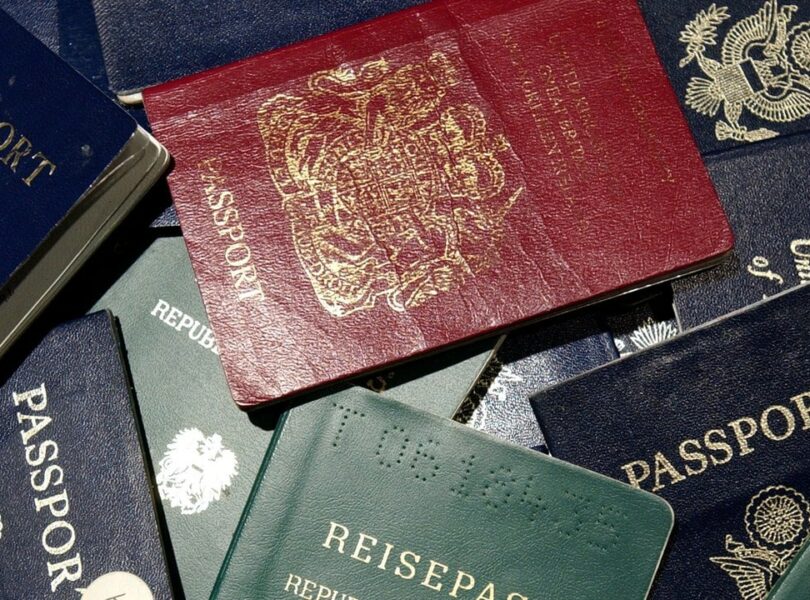Translation of Personal Documents
Types of Personal Documents and Key Requirements for Their Translation into Foreign Languages, as well as Certification of Translations
Personal documents are an essential part of everyone’s life, reflecting personal, civil, and legal data. These documents may need to be translated into foreign languages in various situations, such as submission to embassies, immigration services, educational institutions, or employers in another country. Translating personal documents is a process that requires accuracy and precision, as well as consideration of legal and cultural specifics.
This article explores the main types of personal documents, the requirements for their translation, and the process of certifying translations.
Types of Personal Documents
- Passports and Identity Documents
Passports, driver’s licenses, and national ID cards are the most common documents used to verify a citizen’s identity. Translating these documents is often required for immigration, obtaining visas, employment registration, or obtaining student visas. - Certificates of Birth, Marriage, and Divorce
Birth, marriage, and divorce certificates are important documents for confirming marital status. They may be needed when applying for visas, residence permits, inheritance processing, and other legal matters. - Certificates of Civil Status
These include certificates of criminal record, death certificates, and residency certificates. Such documents often require translation for official requests to government authorities or legal purposes. - Educational Documents
Diplomas, certificates, transcripts, and other academic documents certify educational qualifications. Translating these documents is essential for applications to foreign educational institutions, obtaining visas, or employment abroad. - Employment and Social Documents
Employment records, income certificates, pension, and medical certificates may need translation for job searches abroad, visa applications, or other legal actions. - Real Estate Documents
These include property ownership certificates, purchase and sale agreements, rental contracts, and other real estate-related documents. They may require translation for international real estate transactions, registering property rights in another country, or for notarial procedures. - Medical Documents
Health certificates, medical reports, case histories, and prescriptions may require translation for seeking medical care abroad or applying for medical visas.
Key Requirements for Translating Personal Documents
- Accuracy and Completeness
The most critical requirement for translating personal documents is maximum accuracy and completeness. The translation must fully match the original without altering any words or numbers. Any error can lead to legal consequences or rejection of services (e.g., visas or citizenship). This is particularly important for documents containing personal, civil, or financial data. - Legal and Terminological Precision
Many personal documents contain specific terminology that must be accurately translated into the target language. For instance, birth, marriage, or divorce certificates use official phrasing that must be preserved without alteration. Translators must be familiar with legal and administrative terminology used in the target language’s country. - Format Compliance
In some cases, personal documents have strictly regulated formatting that must be maintained during translation. This includes signatures, stamps, dates, and other details. Additionally, different countries may use different formats for dates, numbers, and addresses, which must also be accounted for. - Neatness and Literacy
Translations must be well-formatted and free of errors or typos. This is particularly important for documents used in official institutions (e.g., consulates or courts). Grammatical or stylistic inconsistencies can cast doubt on the translation’s authenticity and lead to its rejection. - Confidentiality
Personal documents contain sensitive information, such as personal details, marital status, income data, and other information. Translators must adhere to strict security measures to protect this information, including signing confidentiality agreements when necessary.
Certification of Personal Document Translations
An important step in translating personal documents is their certification. Certification confirms that the translation is accurate and corresponds to the original. Certification requirements vary by country, but generally, there are several methods:
- Notarized Translation
For official purposes, notarized translations are often required. A notary certifies that the translation was performed by a competent translator and matches the original. However, the notary does not verify the translation’s accuracy but only certifies the translator’s signature. Notarized certification is necessary for documents used in official institutions (e.g., courts or consulates). - Certification by a Translation Agency
In some cases, certification by a specialized translation agency suffices. This is particularly relevant for personal documents that do not require notarial certification. The agency can provide a certified translation with a stamp and signature, confirming its compliance with the original. - Apostille or Consular Legalization
For certain personal documents, an apostille or consular legalization may be required, especially if the documents will be used in another country. An apostille is a special stamp placed on the original document or its translation, confirming its authenticity. Apostilles are used for documents intended for countries that are parties to the Hague Convention, while other countries may require consular legalization. - Translator’s Signature Certification
In some countries, translators can certify their signatures, confirming that the translation was performed by them personally. This method is used when an apostille or notarial certification is not required but additional verification of the translation’s legal validity is needed.
Conclusion
Translating personal documents requires special attention and adherence to all standards and requirements. Any errors can affect the document’s legal status or cause problems during its use in official institutions. Additionally, certifying the translation is a crucial step, which may include notarial certification, an apostille, or consular legalization, depending on the requirements of the target country. A well-executed and certified translation of personal documents plays a key role in ensuring their legal validity abroad.

How much does it cost to translate personal documents?
Passport or diploma translation
Tulk4You – high-quality and fast translation of documents of any complexity. Why you should choose us: We perform translations of various fields We translate personal documents, certificates, diplomas, medical certificates Favorable prices and convenient terms Individual approach to every customer Do you need a passport or diploma translation? Please contact us. Our experienced specialists will be happy to advise you.
Translation of personal documents is:
- Passport translation
- Identity card translation
- Translation of diploma, translation of secondary school certificate, translation of official document
- Translation of certificate